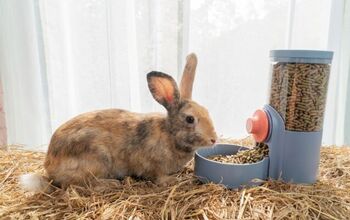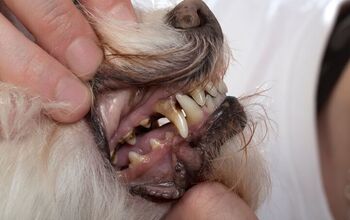6 Things You Can Do to Keep Your Dog’s Heart Healthy

If you thought that keeping your dog “heart healthy” was simply down to controlling his weight and getting in some exercise, you’d only be partially right.
There are a number of issues that can impact your pet’s overall health and his heart in particular. Below, we share some steps to keep your furry little sidekick happy, healthy, and by your side for the long haul.
Let’s start with the one that even humans can relate to…
1. Keep Your Dog’s Weight in Check
Obesity can not only sneak up on an older dog but certain breeds as well. Pugs, Labrador Retrievers and Beagles (to name just a few) are seriously prone to packing on the pounds and regardless of your pet’s general health, extra weight is going to cause joint and back issues over time. It also puts undue stress on this heart and will ultimately compromise your ability to add exercise to his daily routine. If it’s too warm out, too cold out, you’re walking on hard surfaces that stress his joints… you get the picture. Trying to re-establish a healthy weight can be tough when exercise can only be done in short sessions. Best to identify the ideal weight for your dog’s age, breed and gender, then use that as your baseline (or goal). And weigh him periodically to stay on top of those sneaky pounds. Not sure how much he should weigh? Your vet can help you establish the right weight for your particular pooch.
Related: Do I Have a Fat Dog? How to Tell if Your Dog is Overweight
2. Feed Him Quality Foods
Read the side panel of some kibble brands and you’ll notice that carbs or fillers typically form the basis of lesser-quality dog foods. And just as it is for humans, carbs can be a quick fix when hunger hits but they won’t keep you satisfied for long. That’s why your dog continuously raids the cat’s dish and mooches from the dinner table. It’s also how his weight creeps up. Choose a top-quality, high-protein food and live by the 10% rule cited by the American Kennel Club AKC) - “Treats should not make up more than 10% of your dog’s diet.” And when we say 10%, we’re talking total calories (check your dog’s food bag for details) not volume. So, to keep him lean, satisfied and heart-healthy, you may need to start rationing out those tasty little dog treats and consider other low-cal options such as carrot or celery sticks.
3. Provide the Right Level of Exercise
The average resting heart rate for a small breed is 100 to 140 beats per minute and for larger dogs over 30 pounds, between 60 and 100 beats per minute. That’s a lot of work for an organ that can quickly fall out of shape when not maintained properly. Getting your pet up and moving is both physically important and mentally stimulating for him - whether it be a leash-free dog park or just a quick jaunt around the block. The amount of exercise will vary by breed, age and fitness level, but establishing even a moderate routine that slowly helps strengthen the heart muscle over time, will help keep him trim and healthy. And for breeds prone to obesity, that are older, or are ailing, a regimen tailored to meet their specific needs can be relatively simple to devise.
4. Keep His Pearly Whites, Pearly White
Aside from the exorbitant costs associated with doggy dental work, keeping your pet’s teeth and gums in good condition is critical for both overall and heart health. And it starts with inspecting his mouth. I just forked over $2800 to have six of my pooch’s teeth removed. There was no tell-tale smell involved, no indication of any type of sensitivity, and she happily crunched away on kibble without missing a beat. But when I opened her mouth for a quick inspection, it was clear she was in need of extensive work. Mouth infections can spread rapidly throughout your pet’s body and lead to serious heart issues. Never assume enzyme waters (which I use), treats that claim to clean teeth, or hard kibble will take the place of a serious, in-depth cleaning by your vet.
Related: 6 Ways to Keep Your Dog’s Teeth Clean
5. Prevent Parasites Early On
With today’s active dogs busy socializing in dog parks, running off-leash through wooded areas, and drinking from stagnant puddles of water, protecting your pooch from parasites and viruses requires diligence. While every dog should be vaccinated against canine parvovirus, distemper, canine hepatitis and rabies, these won’t safeguard him from worms – including the deadly heartworm. That coverage can be gained through monthly oral and topical treatments prescribed by your vet and designed to protect from ticks, fleas, and mosquitoes that can release heartworm microfilariae into your dog’s bloodstream. Although treatable once diagnosed, heartworm disease is serious and results in lung damage and heart failure.
6. Know Your Breed.
While keeping your dog’s weight in check, his vaccines up-to-date and his muscles toned goes a long way toward maintaining a healthy heart, there are some genetic conditions that certain breeds may be pre-disposed to. Canine Dilated Cardiomyopathy (DCM) impacts the heart muscle’s ability to move blood through the vascular system and is more typical in larger breeds such as Doberman Pinschers, Great Danes, Golden Retrievers, Boxers as well as Cocker Spaniels. Degenerative Mitral Valve Disease (DMVD) is essentially a leaky mitral valve that causes blood to go back into the heart versus out into the body and it impacts smaller breeds such as Poodles, Cavalier King Charles Spaniels and Dachshunds. While Sick Sinus Syndrome (SSS) throws your pet’s natural pacemaker out of whack, causing them to feel lethargic or even pass out. It’s typically associated with females and impacts Miniature Schnauzers, West Highland White Terriers and again, Cocker Spaniels.
The Bottom Line
Were you surprised to learn that most heart-related health issues can be prevented? And even those of a genetic nature can be monitored or treated when caught early. Keeping your pet’s heart in tip-top working order isn’t that dissimilar to how we as humans keep ourselves healthy and fit. So, get out and walk, eliminate the carb-heavy snacks, and see your vet (or doctor) on an annual basis. Easy-peasy, right?

Sharing space with three seriously judgy Schnoodles and a feline who prefers to be left alone. #LivingMyBestLife
More by Mary Simpson






















